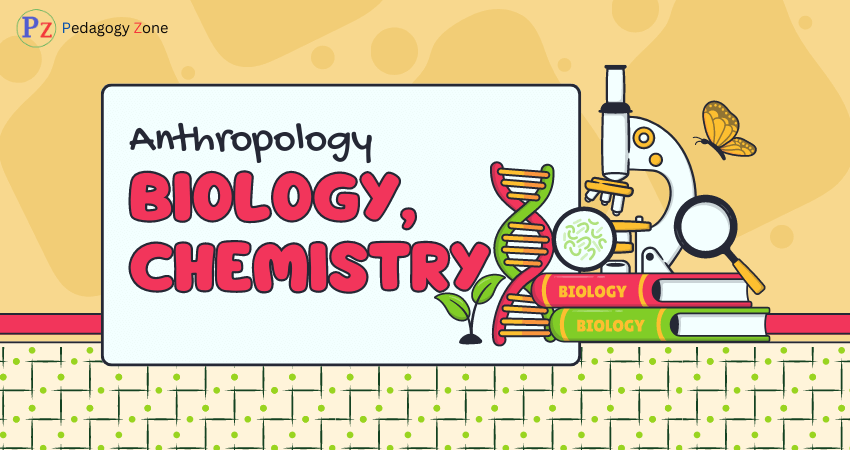Choosing a major is one of the most critical decisions a student makes in their academic journey. For those interested in exploring the complexities of life from a multi-faceted perspective, the combination of Anthropology, Biology, and Chemistry—often referred to as the “ABC” major—offers an exciting, interdisciplinary pathway. But is this blend of subjects a good choice? Let’s delve into the potential benefits, challenges, and career opportunities associated with this unique combination.

Why Choose an ABC Major?
- Broad Understanding of Life Sciences
By integrating Anthropology, Biology, and Chemistry, students gain a comprehensive understanding of life—both human and non-human. Anthropology provides insight into human evolution, culture, and social structures. Biology focuses on the intricacies of living organisms, while Chemistry allows for an understanding of the molecular processes that underpin all forms of life. Together, these disciplines provide a holistic view of life’s complexity. - Interdisciplinary Approach
The ABC major fosters an interdisciplinary mindset, a valuable skill in today’s rapidly evolving world. As global challenges like climate change, pandemics, and social inequality require a multi-dimensional approach, this major equips students with the ability to analyze problems from various perspectives. An understanding of human culture and behavior (Anthropology), biological processes (Biology), and chemical foundations (Chemistry) allows for more integrated solutions. - Versatile Career Paths
The versatility of the ABC major is one of its most attractive features. Graduates can pursue careers in various fields such as public health, environmental conservation, forensic science, biotechnology, pharmaceuticals, academia, and even anthropology and archaeology. This breadth means that students aren’t locked into a single career path; instead, they have the flexibility to pivot across sectors depending on their interests and the job market.
Potential Challenges of the ABC Major
- Balancing Depth and Breadth
One of the main challenges is balancing the depth of knowledge in each discipline. Unlike students who focus solely on one area, ABC majors must achieve proficiency across three distinct fields. This can be demanding, as it requires not only a broad understanding but also the ability to integrate these areas meaningfully. - Heavy Coursework and Time Management
Due to the interdisciplinary nature of the major, the coursework can be intense. Students must be prepared to handle a variety of classes that range from chemical equations and biological systems to anthropological theories and fieldwork. Effective time management and prioritization become critical skills for success in this major. - Need for Advanced Studies
While the ABC major provides a broad foundation, certain career paths may require further specialization or advanced degrees. For example, a career in forensic anthropology might require graduate studies in anthropology or criminal justice, while a role in pharmaceutical research would benefit from a Master’s or PhD in Chemistry or Biology. Students need to be prepared for the possibility of additional education beyond their undergraduate studies.
Is the ABC Major Right for You?
If you are someone who thrives on understanding the connections between human behavior, biological processes, and chemical interactions, the ABC major could be an excellent fit. This major is particularly suited for those who are intellectually curious, have strong analytical skills, and are passionate about applying scientific principles to solve real-world problems. The combination of Anthropology, Biology, and Chemistry provides a unique lens through which to view the world, making it a compelling choice for students who want to make an impact in a diverse range of fields.
The Anthropology, Biology, and Chemistry (ABC) major is more than just a collection of three disciplines; it’s a fusion that prepares students to address some of the most pressing issues of our time. With its interdisciplinary approach, broad career potential, and intellectual rigor, it offers a unique and fulfilling academic path. However, it requires dedication, time management, and possibly further specialization.
| Read More Topics |
| Philosophy of Christian education anthropology |
| What is cultural resource management? |
| The future of learning virtual lab electrochemical cells |





